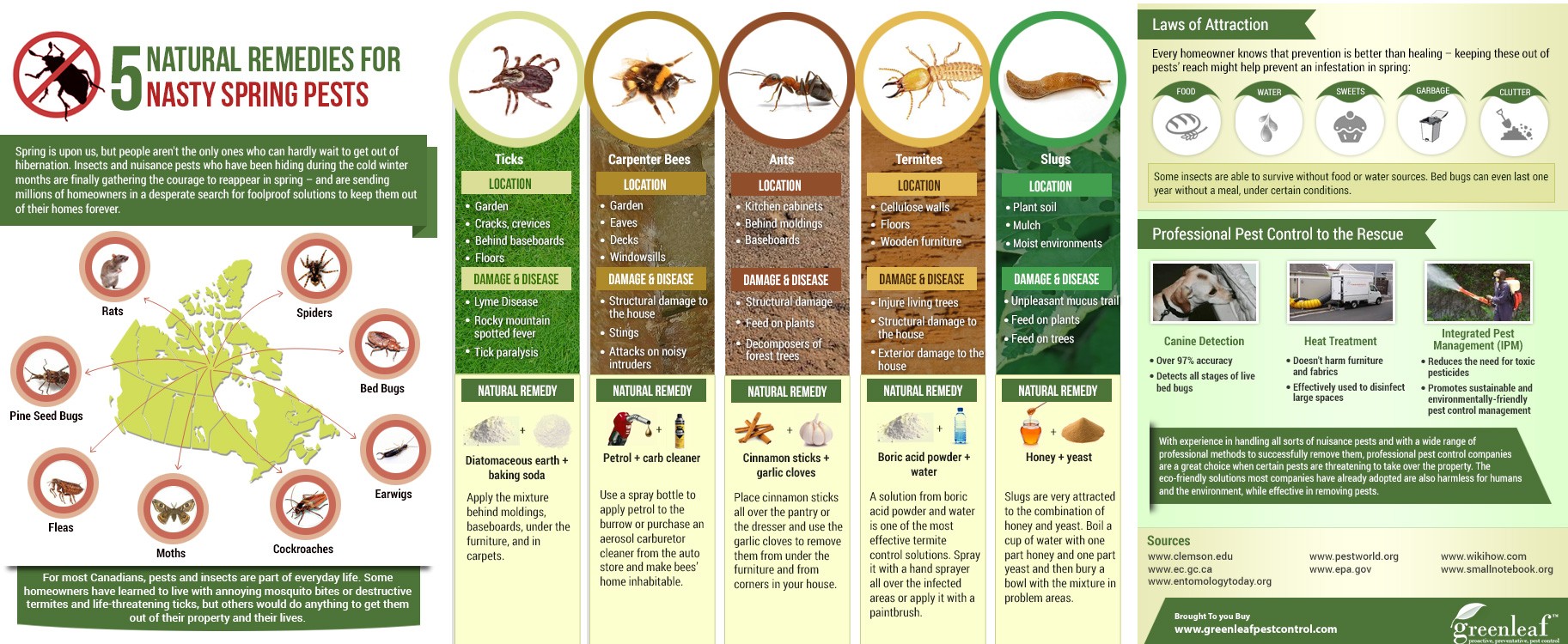The Tricks Of Parasite Control Pros! Unleash The Power Of Advanced Techniques And Bid Farewell To Pesky Bugs Forever
The Tricks Of Parasite Control Pros! Unleash The Power Of Advanced Techniques And Bid Farewell To Pesky Bugs Forever
Blog Article
Content Produce By-Camp Kincaid
Are you tired of depending entirely on sprays to deal with pests in your house or office? While sprays can be effective, pest control specialists have established advanced techniques that surpass simply splashing chemicals.
These strategies not only give extra efficient and resilient services, however likewise focus on lessening using hazardous pesticides. By exploring these advanced strategies, you will certainly uncover a whole new globe of pest control techniques that are not only reliable, however also eco-friendly.
So, are you prepared to take your parasite control game to the following level?
Integrated Parasite Administration (IPM)
If you're seeking an efficient and environmentally-friendly strategy to pest control, Integrated Insect Administration (IPM) is the option you require. IPM concentrates on long-term prevention and monitoring of pests, as opposed to merely depending on chemicals. This approach takes into consideration the certain demands and behaviors of insects, along with the surrounding setting.
By utilizing a combination of strategies such as organic control, environment manipulation, and targeted chemical use, IPM aims to minimize the dependence on chemical treatments and lessen injury to non-target organisms.
One crucial aspect of IPM is keeping an eye on and determining bugs precisely. This includes on a regular basis evaluating and analyzing the pest populace, along with determining the specific varieties existing. By recognizing the biology and behavior of bugs, bug control professionals can establish targeted techniques to interrupt their life cycle and lower their numbers.
Another vital element of IPM is utilizing non-chemical control techniques whenever possible. This can consist of physical obstacles, such as setting up screens or securing splits and holes, to avoid pests from getting in buildings. In addition, social techniques, like correct cleanliness and waste management, can assist get rid of parasite food resources and breeding premises.
When chemicals are essential, IPM focuses on utilizing them deliberately and as a last resort. This indicates choosing the least poisonous and most efficient choice, applying it precisely and just to impacted areas, and adhering to all safety and security guidelines. By minimizing chemical use, IPM decreases the prospective threats to human wellness and the setting.
Biological Control
To further enhance the effectiveness of Integrated Pest Administration (IPM), the next subtopic we'll check out is the method of biological control. This technique makes use of natural predators or bloodsuckers to control insects.
Right here are 4 key aspects of organic control:.
1. Intro of all-natural opponents: In this method, beneficial pests or microorganisms are presented to the area plagued with parasites. These all-natural enemies victimize the bugs, assisting to decrease their populace.
2. https://spectrumlocalnews.com/nc/charlotte/news/2023/04/07/animal-rescue-center-in-liberty-reopens-in-time-for-national-wildlife-week of natural adversaries: As opposed to introducing brand-new microorganisms, this method concentrates on producing a suitable setting for existing beneficial insects. This can be attained through offering food, shelter, and water resources.
3. Enhancement: Below, the variety of natural adversaries is enhanced unnaturally by reproducing and launching them into the ravaged area. This helps to rapidly decrease the pest population.
4. Push-pull technique: This method combines repellents and attractants to control the behavior of bugs. Repellents push bugs away from plants, while attractants tempt them towards trap plants or areas where they can be quickly regulated.
Habitat Alteration
Environment modification plays an important role in parasite control by modifying the setting to inhibit parasite problems. By making changes to the physical features of a room, you can create an unwelcoming atmosphere for pests, making it harder for them to make it through and prosper.
One usual approach of environment alteration is getting rid of or decreasing potential food sources for parasites. This can consist of appropriate waste management, sealing containers, and cleaning up food crumbs.
Furthermore, removing or reducing areas of standing water can assist control insects like mosquitoes.
Changing the landscape by cutting trees and hedges far from structures can likewise prevent bugs from accessing your residential property.
Final thought.
So there you have it - the innovative strategies utilized by bug control experts exceed simply spraying chemicals. Integrated Insect Administration (IPM) combines different methods to efficiently regulate bugs, while biological control uses natural adversaries to keep parasite populations in check.
Habitat modification likewise plays a critical duty in avoiding bug invasions.
Did you know that according to a study, implementing IPM techniques decreased chemical use by approximately 71%? This not just shields our wellness and the environment however likewise saves cash in the long run.
